October eNews
The First CSO-Media Engagement Forum to foster Collaboration and Enhance Advocacy
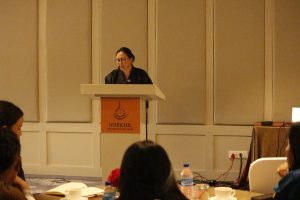
The first Civil Society Organisation (CSO)-Media Engagement Forum convened on October 29, bringing together 50 representatives from CSOs, media, development partners, and students from the Royal Thimphu College (RTC). Organised by the Bhutan Centre for Media and Democracy (BCMD) and DW Akademie, in partnership with RENEW, Save the Children Bhutan, and the Bhutan Transparency Initiative, with funding from the European Union (EU), the forum aimed to strengthen collaboration, trust, and transparency between CSOs and the media for better advocacy, fact-based reporting, and inclusive development.
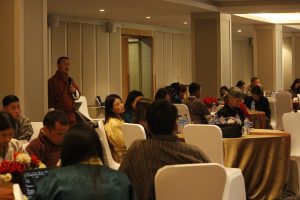
A panel discussion brought forth insights from CSO and media representatives, who examined challenges and opportunities in building a stronger partnership. CSO representatives emphasised the importance of presenting clear, well-prepared stories to the media to minimise misinterpretation and increase public awareness. Media representatives, on the other hand, underscored the need for CSOs to be transparent, noting that critical, balanced reporting can reinforce public trust in CSO-driven initiatives. Participants highlighted the potential of collaborative storytelling to influence policy and make a lasting social impact, calling for a consistent approach in advocacy reporting to drive meaningful policy changes.
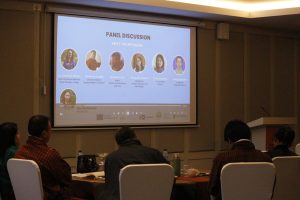
The forum also provided a candid space for mutual understanding, as participants shared the challenges unique to each sector. There was a shared acknowledgment of the differentiated roles that various CSOs play in the development landscape, with recommendations made to strengthen inter-sector collaboration. Emphasising that neither sector should undermine the other’s independence, participants agreed that fostering trust is essential for gaining citizen confidence in both sectors.
At the event, RENEW introduced the newly developed CSO-Media Engagement Framework, a foundational guide that provides a roadmap for enhanced communication and cooperation between these two crucial sectors in Bhutan’s development narrative. This framework, created in consultation with stakeholders from both sectors, was designed to address gaps and challenges in how CSOs and media work together, and foster collaborative engagement.
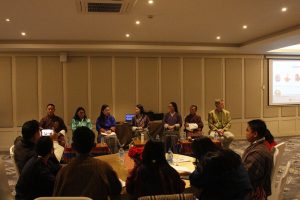
The forum concluded with a joint commitment to enhance capacity-building efforts and maintain open lines of communication to better serve the public. Both sectors vowed to build a shared responsibility in shaping Bhutan’s socio-economic and value-based growth, contributing to the country’s development narrative through enhanced cooperation and collective efforts.
Empowering Youth Advocates: Voices for Change Workshops to tackle Child Protection and Gender-Based Violence
Over the month, a series of transformative workshops under the “Voices for Change” initiative have taken place in various schools, equipping young advocates with the knowledge and skills to address critical issues related to child protection and gender-based violence. Supported by UNICEF Bhutan, these workshops empowered students to become proactive citizens and advocates for change within their communities.
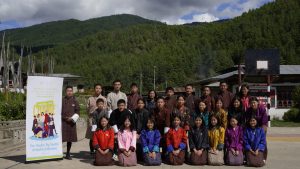

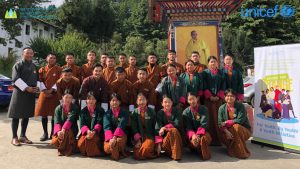
The journey began at Tang Central School, Bumthang, where 20 enthusiastic youths engaged in discussions on pressing issues like the inaccessibility of clean toilets, academic stress, theft, and truancy. Through problem tree analysis and creative performances, students highlighted how broken sanitation facilities disproportionately impact girls, leading to health problems such as urinary tract infections. The session emphasised the importance of hygiene, with students proposing inviting a health assistant to raise awareness about sanitation and sexual and reproductive health. They also discussed the responsibility of students in fostering a supportive and safe school environment. The workshop concluded with the production of four podcasts, allowing students to creatively express their solutions and experiences.
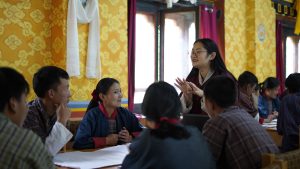
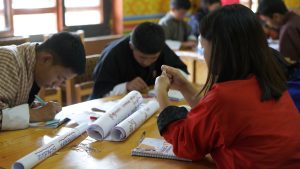
The success of the Tang workshop carried forward to Jakar Higher Secondary School, where 20 students identified issues such as classroom disengagement, substance use, and peer support limitations. Participants used media tools to amplify their advocacy efforts, producing another series of impactful podcasts. The workshops stressed that students have a crucial role in creating positive change in their schools, from reducing substance abuse to improving academic performance.
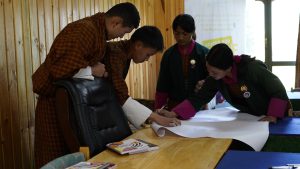
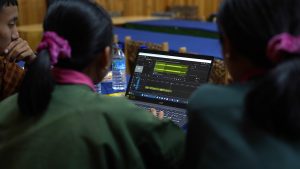
At Bitekha Middle Secondary School, 47 students tackled critical issues like bullying, gang-violence, academic decline, and exam malpractice. Over four days, participants collaborated on advocacy messages and created six podcasts to raise awareness among their peers. The school administration, in response to the discussions, pledged to take immediate action on the issues raised.

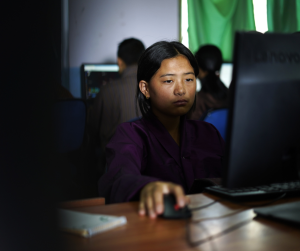
Through the workshops at these three schools, the inclusivity of the programme was also expanded to reach and empower youth advocates as the Voices for Change, in tackling the issues in the remote schools, first for all three. Across all schools, students embraced their role as responsible members of their communities, drawing a strong focus on accountability, fairness, and inclusivity. The workshops, enriched by sessions on news literacy, empowered these young advocates to discern credible information and use media to drive positive change.
These workshops mark the ongoing advocacy efforts on media literacy and responsible consumers of news and social media, as students commit to spreading awareness and inspiring action in their communities.
